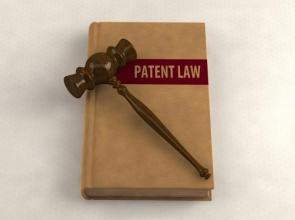
What is Bioengineering?
This discipline applies biological and engineering principles to develop useful, economicallyviable products. These include genetically-modified organisms (GMOs), sophisticated diving suits, prosthetics, pharmaceuticals, biopesticides, and imaging systems like MRIs and CT scans.
Some of these technologies and products are heavily regulated.
GMOs
Three federal agencies have jurisdiction over the regulation of GMOs:
- Food and Drug Administration (FDA). This agency ensures that GMO foods meet the same safety standards as other foods consumed by humans.
- Environmental Protection Agency (EPA). The EPA regulates pesticides, including bioengineered pesticides called plant-incorporated protectants (PIPs). PIPs are in some GMO plants to help resist insects and diseases.
- Department of Agriculture (USDA). This agency’s Animal and Plant Health Inspection Service (APHIS) regulates GMO plants to ensure they are not harmful to non-GMO plants.
EPA’s PIP Program
PIPs are bioengineered pesticidal substances, including genetic material. For example, a bioengineer can take the gene for a pesticidal protein and introduce it into another plant’s genetic material. This allows the plant to produce the pesticidal protein that kills or inhibits target pests when they feed on the plant. EPA regulates the genetic material, not the plant it is incorporated into.
For a company to use this type of bioengineered pesticide, it must obtain registration from the EPA. This agency examines the potential risks to human health or the environment. It requires comprehensive studies that discuss several factors, including:
- Risks to other plants and to humans and the environment;
- Potential for gene flow (migration of the genetic material to other plants); and
- Necessity of insect resistance management plans.
The EPA bases its ultimate decision on strict scientific standards.
USDA’s APHIS Program
APHIS “regulates the importation, interstate movement, or environmental release (i.e., outdoor field trials) of certain organisms developed using genetic engineering (including plants, insects, and microbes) that may pose a plant pest risk.”
Companies must apply for a permit from APHIS to use these organisms. This permit application must detail the nature of the organism and steps that will be taken to prevent the spread of them in the environment.
Opportunities for the Bioengineering Lawyer in GMOs
The bioengineering lawyer works for large corporations that wish to market and sell GMO foods, PIPs, or organisms developed using genetic engineering. They help guide the corporation’s technical experts through the complex web of federal approval processes at FDA, EPA, or APHIS.
Pharmaceuticals
Bioengineers develop new drugs for pharmaceutical companies. These new drugs must be approved by the FDA prior to use and sale. The FDA’s Center for Drug Evaluation and Research (CDER) handles the approval process.
Before approving, CDER evaluates a proposed pharmaceutical to ensure the drug works properly and that its medical treatment benefits outweigh its health risks.
The initial requirement in the approval process is testing. First, laboratory testing is performed. Second, research is conducted on animals. Third, at least two clinical trials are performed. Once the testing is complete, the company sends the data to CDER for review. CDER looks at these factors:
- Available treatments. For the medical condition being treated, CDER surveys the treatments available and determines whether the proposed drug may be an improvement upon them.
- Benefit-risk analysis. Are the benefits greater than the risks?
- Minimizing risks. Are there ways, through labeling or dosage controls, that any risks associated with the drug can be mitigated?
Opportunities for the Bioengineering Lawyer in the FDA Drug Approval Process
Pharmaceuticals are a billion-dollar industry. Corporations spend millions on developing new drugs, and their continued existence may depend upon FDA approval of a newly developed drug. The bioengineering lawyer represents pharmaceutical companies before the FDA. They make sure the corporation follows all the rules and submits the correct documentation at the right time.
Opportunities for the Bioengineering Attorney in Patents
Bioengineers develop many new products that require patents, which are the invention or discovery of “any new and usefulprocess, machine, manufacture, or composition of matter, or any new and useful improvement thereof.”
Three types of patents exist:
- Utility – a new and useful, or improvement upon, a process, machine, article of manufacture, or composition of matters.
- Design – an article of manufacture with a new and original design.
- Plant – an invention or discovery of a distinct new variety of plants, with successful asexual reproduction of it.
Patents of new inventions or discoveries based on bioengineering are quite complicated. Here are a few examples:
- Malaria. “A test kit for the rapid detection and drug sensitivity of malaria is presented. The test kit of the present invention comprises a unique microscope/slide incubation chamber which permits rapid detection of malaria in wet blood samples using a regular transmitted light microscope to detect opaque hemozoin particles.”
- Enzymatic hydrolysis. “An apparatus for enzymatic hydrolysis and fermentation of pretreated lignocellulosic material, in the form of a tower bioreactor, having mixers to achieve intermittent mixing of the material.”
- Phthalein derivatives. “High purity phthalein derivatives are useful for medical applications and/or in the field of biotechnology. The phthalein derivatives are prepared by a method whereby a phthalic anhydride derivative is condensed with a naphthol or phenol derivative in an organic acid ester and the crystals of the resulting condensate are converted by action of a strong acid or one of its precursors in anhydrous medium.”
Patent Acquisition
One major field of opportunity for the bioengineering attorney is the application for a patent from the United States Patent and Trademark Office (USPTO). They work on behalf of the person trying to obtain a patent. It is an arduous and technicallydemanding task that requires all the dedication and effort of a detail-oriented bioengineering attorney.
However, not any lawyer can do this job. They must be a registered patent attorney, which requires a bachelor’s degree in science or engineering and passing the notoriously difficult patent bar exam. This exam consists of 100 multiple-choice questions with a time limit of six hours.
Many patent applications are denied. In this case, after two denials, the bioengineering attorney may appeal to the Patent Trial and Appeals Board (PTAB).
This consists of:
- Filing a Notice of Appeal.
- Writing and submitting an appeal brief within 60 days of filing. Otherwise, the appellant’s right of appellate review is lost.
- Responding to USPTO’s response to the appeal brief.
- Attending and presenting oral arguments before the PTAB.
If the PTAB is unsuccessful, the next step for the bioengineering lawyer is an appeal in federal court.
Patent Litigation
Patents are aggressively protected. More than 12,000 intellectual property lawsuits are initiated in federal court every year. A significant percentage of them deal with intellectual property infringement, including patent infringement.
These lawsuits are filed for two main purposes – to recover damages for infringement and to get an injunction to stop it. There are two basic elements to a patent infringement complaint. One is ownership of the patent, and the other is the validity of it.
In cases revolving around bioengineering patents, the bioengineering lawyer either files a claim for infringement or represents the company accused of it.
How Do I Become a Bioengineering Lawyer?
To effectively practice bioengineering law, the attorney should have a solid academic background in biology and engineering. Then, armed with a law degree and bar membership, the attorney is well on their way to becoming a bioengineering lawyer.
About Harrison Barnes
Harrison Barnes is a prominent figure in the legal placement industry, known for his expertise in attorney placements and his extensive knowledge of the legal profession.
With over 25 years of experience, he has established himself as a leading voice in the field and has helped thousands of lawyers and law students find their ideal career paths.
Barnes is a former federal law clerk and associate at Quinn Emanuel and a graduate of the University of Chicago College and the University of Virginia Law School. He was a Rhodes Scholar Finalist at the University of Chicago and a member of the University of Virginia Law Review. Early in his legal career, he enrolled in Stanford Business School but dropped out because he missed legal recruiting too much.
Barnes' approach to the legal industry is rooted in his commitment to helping lawyers achieve their full potential. He believes that the key to success in the legal profession is to be proactive, persistent, and disciplined in one's approach to work and life. He encourages lawyers to take ownership of their careers and to focus on developing their skills and expertise in a way that aligns with their passions and interests.
One of how Barnes provides support to lawyers is through his writing. On his blog, HarrisonBarnes.com, and BCGSearch.com, he regularly shares his insights and advice on a range of topics related to the legal profession. Through his writing, he aims to empower lawyers to control their careers and make informed decisions about their professional development.
One of Barnes's fundamental philosophies in his writing is the importance of networking. He believes that networking is a critical component of career success and that it is essential for lawyers to establish relationships with others in their field. He encourages lawyers to attend events, join organizations, and connect with others in the legal community to build their professional networks.
Another central theme in Barnes' writing is the importance of personal and professional development. He believes that lawyers should continuously strive to improve themselves and develop their skills to succeed in their careers. He encourages lawyers to pursue ongoing education and training actively, read widely, and seek new opportunities for growth and development.
In addition to his work in the legal industry, Barnes is also a fitness and lifestyle enthusiast. He sees fitness and wellness as integral to his personal and professional development and encourages others to adopt a similar mindset. He starts his day at 4:00 am and dedicates several daily hours to running, weightlifting, and pursuing spiritual disciplines.
Finally, Barnes is a strong advocate for community service and giving back. He volunteers for the University of Chicago, where he is the former area chair of Los Angeles for the University of Chicago Admissions Office. He also serves as the President of the Young Presidents Organization's Century City Los Angeles Chapter, where he works to support and connect young business leaders.
In conclusion, Harrison Barnes is a visionary legal industry leader committed to helping lawyers achieve their full potential. Through his work at BCG Attorney Search, writing, and community involvement, he empowers lawyers to take control of their careers, develop their skills continuously, and lead fulfilling and successful lives. His philosophy of being proactive, persistent, and disciplined, combined with his focus on personal and professional development, makes him a valuable resource for anyone looking to succeed in the legal profession.
About BCG Attorney Search
BCG Attorney Search matches attorneys and law firms with unparalleled expertise and drive, while achieving results. Known globally for its success in locating and placing attorneys in law firms of all sizes, BCG Attorney Search has placed thousands of attorneys in law firms in thousands of different law firms around the country. Unlike other legal placement firms, BCG Attorney Search brings massive resources of over 150 employees to its placement efforts locating positions and opportunities its competitors simply cannot. Every legal recruiter at BCG Attorney Search is a former successful attorney who attended a top law school, worked in top law firms and brought massive drive and commitment to their work. BCG Attorney Search legal recruiters take your legal career seriously and understand attorneys. For more information, please visit www.BCGSearch.com.
Harrison Barnes does a weekly free webinar with live Q&A for attorneys and law students each Wednesday at 10:00 am PST. You can attend anonymously and ask questions about your career, this article, or any other legal career-related topics. You can sign up for the weekly webinar here: Register on Zoom
Harrison also does a weekly free webinar with live Q&A for law firms, companies, and others who hire attorneys each Wednesday at 10:00 am PST. You can sign up for the weekly webinar here: Register on Zoom
You can browse a list of past webinars here: Webinar Replays
You can also listen to Harrison Barnes Podcasts here: Attorney Career Advice Podcasts
You can also read Harrison Barnes' articles and books here: Harrison's Perspectives
Harrison Barnes is the legal profession's mentor and may be the only person in your legal career who will tell you why you are not reaching your full potential and what you really need to do to grow as an attorney--regardless of how much it hurts. If you prefer truth to stagnation, growth to comfort, and actionable ideas instead of fluffy concepts, you and Harrison will get along just fine. If, however, you want to stay where you are, talk about your past successes, and feel comfortable, Harrison is not for you.
Truly great mentors are like parents, doctors, therapists, spiritual figures, and others because in order to help you they need to expose you to pain and expose your weaknesses. But suppose you act on the advice and pain created by a mentor. In that case, you will become better: a better attorney, better employees, a better boss, know where you are going, and appreciate where you have been--you will hopefully also become a happier and better person. As you learn from Harrison, he hopes he will become your mentor.
To read more career and life advice articles visit Harrison's personal blog.




